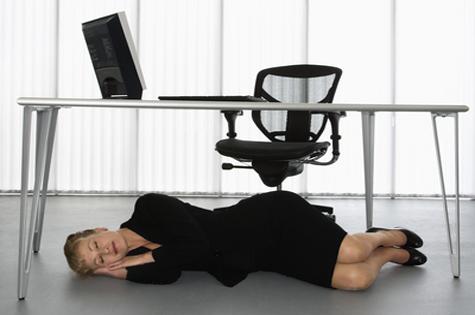It’s late. You’ve got home from work, cooked dinner, done some housework, got things ready for tomorrow and you really should prepare for something important at work the next day. You should be in bed in 30 minutes time because you also want to try to get to the gym at 6.30am to start the day the right way. But you’re wide awake. And you haven’t had any time whatsoever to relax.
Welcome to a mum’s world, where sleep deprivation appears to be the norm, and which can affect your health much more than drowsiness after lunch the next day.
The importance of sleep is because your cells repair themselves more rapidly at night time. Your body produces higher levels of natural hormones that promote cellular renewal and your digestive system gets a break – hence the importance of ‘break-fast’ (but that’s another article!).
So if you don’t get enough sleep, you skip those important processes of your body. Research also shows that sleep deprivation leads to a hormone telling your brain that it hasn’t had enough to eat, so that’s when you go looking for sugar, processed carbs and other not-so-good things to help get more energy.
So how do you get the ‘standard’ eight hours sleep per night, or something close to that?
According to experts such as celebrity ‘wellness’ physician, Dr Frank Lipman, the number one strategy is to set a schedule and stick to it. You need a regular bedtime, regardless of the day of the week, together with these five ideas to help you get the good night’s sleep that you not only deserve – but need.
1. Set an electronic sundown time
“An hour before you go to bed, stop sitting in front of your computer, TV or tablet and switch off all other electronic devices,” Dr Lipman says. “They are too stimulating to the brain and interfere with your sleep.”
2. Keep the room dark
“Our bodies need complete darkness for production of melatonin, the important sleep hormone,” Dr Lipman explains. “Cover all the lights of any electronic device and use dark shades or drapes on the windows if they are exposed to light.”
If you’ve got one too many lights in the street getting into your bedroom, invest in an eye mask.
3. Give coffee an afternoon break
“Caffeine is a powerful stimulant with a typical half-life of seven hours, which means that half of it is still coursing through your veins seven hours later,” he says.
4. Cut back on alcohol
It may seem counter-intuitive considering how sleepy a glass of wine on Friday night makes you, but “in general, those with problems sleeping should avoid alcohol, as it can be as disruptive to the body’s sleep rhythms as caffeine,” Dr Lipman cautions.
“While it has an initial sleep-inducing effect, as the body breaks it down, it can lighten and disrupt sleep by causing frequent and early awakening.”
5. Set the mood
Don’t expect to go from full speed to passed-out in the blink of an eye.
“Turn down the bedroom lights an hour or so before lights out. Meditate or listen to calming classical music at low volume. Take the time to slowly ‘power-down’ your mind and body so you can drift happily into the good sleep you deserve," Dr Lipman says.
Motherpedia’s tried & tested top 5 power-down play list
- Beethoven – Sonata Pathetique, Second Movement, Adagio
- Vivaldi – Guitar Concerto in D Major RV93, Second Movement, Largo
- Saint Saens – The Swan from Carnival of Animals
- Debussy – Suite Bergamesque, No. 3, Clair de Lune
- Massenet – Meditation de Thais (for Violin) - featured below.



















__small.png)










